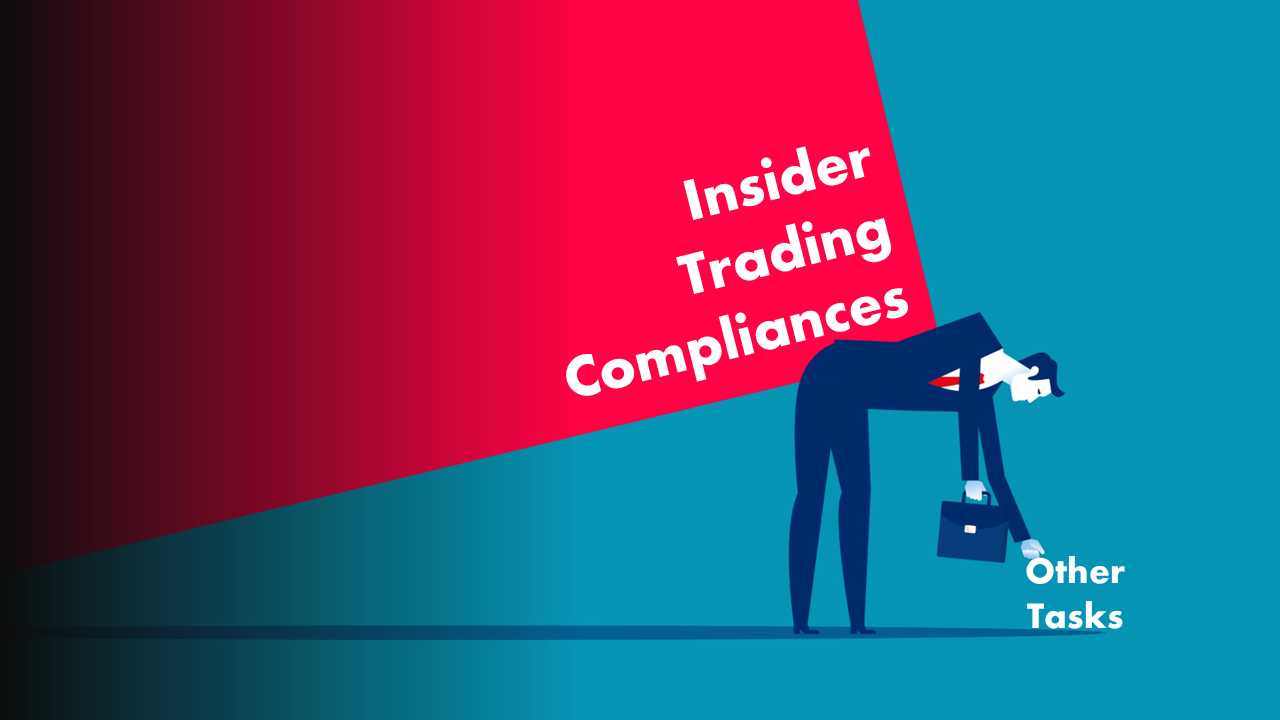Professionals in the financial services industry would be well aware of the challenges faced by organizations when it comes to complying with regulatory requirements are nothing short of stupefying.
In this blog post, we discuss one such challenge – navigating the complexities of designated person compliance as per the Securities and Exchange Board of India (SEBI) requirements. Throughout this article, we provide insights on understanding SEBI regulations, identifying designated persons within your organization, implementing a robust compliance framework, and tips for achieving compliance with confidence.
Introduction to SEBI and Designated Person Compliance
The Securities and Exchange Board of India (SEBI) is the regulatory authority responsible for overseeing the securities market in India. SEBI was established in 1988 and has since played a crucial role in the growth and development of the Indian securities market by ensuring a fair, transparent, and efficient market environment (see history of Anti-Insider Trading Regulations in India).
One of the key objectives of SEBI is to prevent market manipulation and insider trading. To achieve this, SEBI has laid down stringent regulations pertaining to designated persons and their compliance requirements. Designated persons, as defined by SEBI, are employees or connected persons of a listed company or market intermediary who are expected to have access to unpublished price-sensitive information (UPSI).
In this article, I will delve into the SEBI regulations for designated persons, their roles and responsibilities, and how organizations can ensure compliance with these requirements.
Understanding the SEBI Regulations for Designated Persons
SEBI has laid down comprehensive regulations concerning designated person compliance in the form of the SEBI (Prohibition of Insider Trading) Regulations, 2015, as amended from time to time. These regulations set forth various requirements to be adhered to by designated persons and their immediate relatives.
Some of the key requirements under the SEBI regulations for designated persons include:
- Reporting of holdings and trades in securities: Designated persons are required to disclose their holdings and trades in securities of the company to the company and SEBI, as per the specified formats and timelines.
- Trading window closure: Designated persons are prohibited from trading in securities of the company during the period when the trading window is closed. The trading window is closed when there is UPSI that could materially impact the price of the company’s securities (read more about Trading Window Closure).
- Pre-clearance of trades: Designated persons are required to obtain pre-clearance from the company’s compliance officer before executing any trade in the company’s securities above a specified threshold. That threshold, depending on the company, may be zero (meaning that all trades need approval). In fact, for intermediaries the term ‘company’ has a far wider implication as it is not just concerned with the listed stock of all its clients, current and potential.
- Trading plan: Designated persons can formulate a trading plan as per the SEBI regulations, which allows them to trade in securities of the company without being subject to certain restrictions.
Role and Responsibilities of a Designated Person as per SEBI
The role of a designated person as per SEBI regulations primarily involves ensuring compliance with the insider trading regulations. Some of the key responsibilities of a designated person include:
- Reporting requirements: Designated persons are responsible for ensuring timely and accurate reporting of their holdings and trades in securities of the company to the company and SEBI.
- Ensuring compliance with trading window closure: Designated persons must not trade in securities of the company during the period when the trading window is closed.
- Obtaining pre-clearance for trades: Designated persons must obtain pre-clearance from the company’s compliance officer before executing any trade in the company’s securities above the specified threshold.
- Formulating and adhering to a trading plan: If a designated person opts to formulate a trading plan, they must ensure that the plan complies with the SEBI regulations and must strictly adhere to the plan.
- Maintaining confidentiality of UPSI: Designated persons must maintain the confidentiality of UPSI and not communicate or provide such information to any unauthorized person.
- While not directly related to the regulatory requirements as they apply to Structured Digital Databases, Designated Persons certainly do have a greater part to play in compliance with the SDD requirements than others.
Identifying Designated Persons within Your Organization
In order to ensure compliance with SEBI regulations, organizations must first identify the designated persons within their organization. The process of identification may vary depending on the nature and size of the organization. Generally, the following categories of individuals may be classified as designated persons:
- Directors and key managerial personnel: These individuals are typically involved in decision-making processes and have access to UPSI.
- Employees in specific departments: Employees working in departments such as finance, legal, corporate strategy, and investor relations are likely to have access to UPSI.
- Connected persons: These include individuals who have a professional or business relationship with the company that is likely to result in access to UPSI. This may include external consultants, auditors, and legal advisors.
- Immediate relatives: The immediate relatives of designated persons are also considered designated persons under SEBI regulations and are subject to the same compliance requirements.
Compliance Requirements for Designated Persons
Once the designated persons within the organization have been identified, the next step is to ensure that they are aware of and comply with the SEBI regulations. Some of the key compliance requirements for designated persons include:
- Periodic reporting of holdings and trades: Designated persons must report their holdings and trades in securities of the company to the company and SEBI periodically, as per the specified formats and timelines.
- Adherence to trading window closure: Designated persons must not trade in securities of the company during the period when the trading window is closed.
- Obtaining pre-clearance for trades: Designated persons must obtain pre-clearance from the company’s compliance officer before executing any trade in the company’s securities above the specified threshold.
- Formulating and adhering to a trading plan: If a designated person opts to formulate a trading plan, they must ensure that the plan complies with the SEBI regulations and must strictly adhere to the plan.
- Maintaining confidentiality of UPSI: Designated persons must maintain the confidentiality of UPSI and not communicate or provide such information to any unauthorized person.
Implementing a Robust Compliance Framework
To ensure that designated persons within the organization comply with the SEBI regulations, it is important for organizations to have a robust compliance framework in place. This framework should include the following components:
- Policies and procedures: Organizations must have well-drafted policies and procedures in place that outline the responsibilities of designated persons and the steps to be followed for ensuring compliance with SEBI regulations.
- Training and awareness: Organizations must conduct regular training and awareness programs for designated persons to ensure that they are well-versed with the SEBI regulations and their responsibilities.
- Monitoring and supervision: Organizations must have a system in place to monitor and supervise the activities of designated persons to ensure compliance with the SEBI regulations.
- Reporting and record-keeping: Organizations must maintain records of all disclosures, pre-clearance requests, and trading plans submitted by designated persons, and report the same to SEBI as per the specified formats and timelines.
- Periodic review and update: Organizations must periodically review and update their policies and procedures to ensure that they remain aligned with the latest SEBI regulations and market practices.
Insider Trading and Designated Person Compliance
Insider trading is a serious offense that can have severe consequences for both the individual involved and the organization. Designated person compliance plays a crucial role in preventing insider trading, as it ensures that individuals with access to UPSI adhere to the SEBI regulations and do not engage in any unlawful activities.
By ensuring that designated persons maintain the confidentiality of UPSI, do not trade based on such information, and comply with the reporting and disclosure requirements, organizations can effectively safeguard themselves from the risks associated with insider trading.
Penalties and Consequences of Non-compliance
Non-compliance with SEBI regulations can result in severe penalties and consequences for both the designated persons and the organization. Some of the penalties that may be imposed by SEBI include:
- Monetary penalties: Designated persons and organizations may be required to pay monetary penalties, which can be significant depending on the gravity of the violation.
- Prohibition on trading: SEBI may prohibit the designated person from trading in securities for a specified period.
- Criminal prosecution: In case of serious violations, designated persons and organizations may also be subject to criminal prosecution, which may result in imprisonment and/or monetary fines.
- Reputational damage: Non-compliance with SEBI regulations can also result in significant reputational damage for the organization, which may have long-term implications for its business.
Tips for Navigating the Complexities of Designated Person Compliance
Navigating the complexities of designated person compliance can be challenging, but with the right approach, organizations can ensure that they meet SEBI requirements with confidence. Here are some tips for achieving designated person compliance:
- Stay updated on regulatory changes that can be incorporated into your compliance systems and applications: Regularly review and stay updated on the latest SEBI regulations and market practices to ensure that your organization’s policies and procedures remain aligned with the requirements.
- Provide comprehensive training and awareness: Conduct regular training and awareness programs for designated persons and intimate them of their obligations to ensure that they are well-versed with the SEBI regulations and their responsibilities.
- Implement a robust compliance framework: Establish a strong compliance framework that includes well-drafted policies and procedures, controlled applications to ensure compliance, monitoring and supervision mechanisms, and reporting and record-keeping systems.
- Foster a culture of compliance: Encourage a culture of compliance within the organization, where designated persons understand the importance of adhering to SEBI regulations including through regular communications and emails.
Conclusion: Meeting SEBI Requirements with Confidence
Designated person compliance is a critical aspect of ensuring a fair, transparent, and efficient securities market, which is why SEBI places so much stress upon it. By understanding the SEBI regulations, identifying designated persons within the organization, implementing a robust compliance framework system, and following the tips shared in this article, organizations can meet SEBI requirements with confidence and protect themselves from the risks associated with insider trading.



